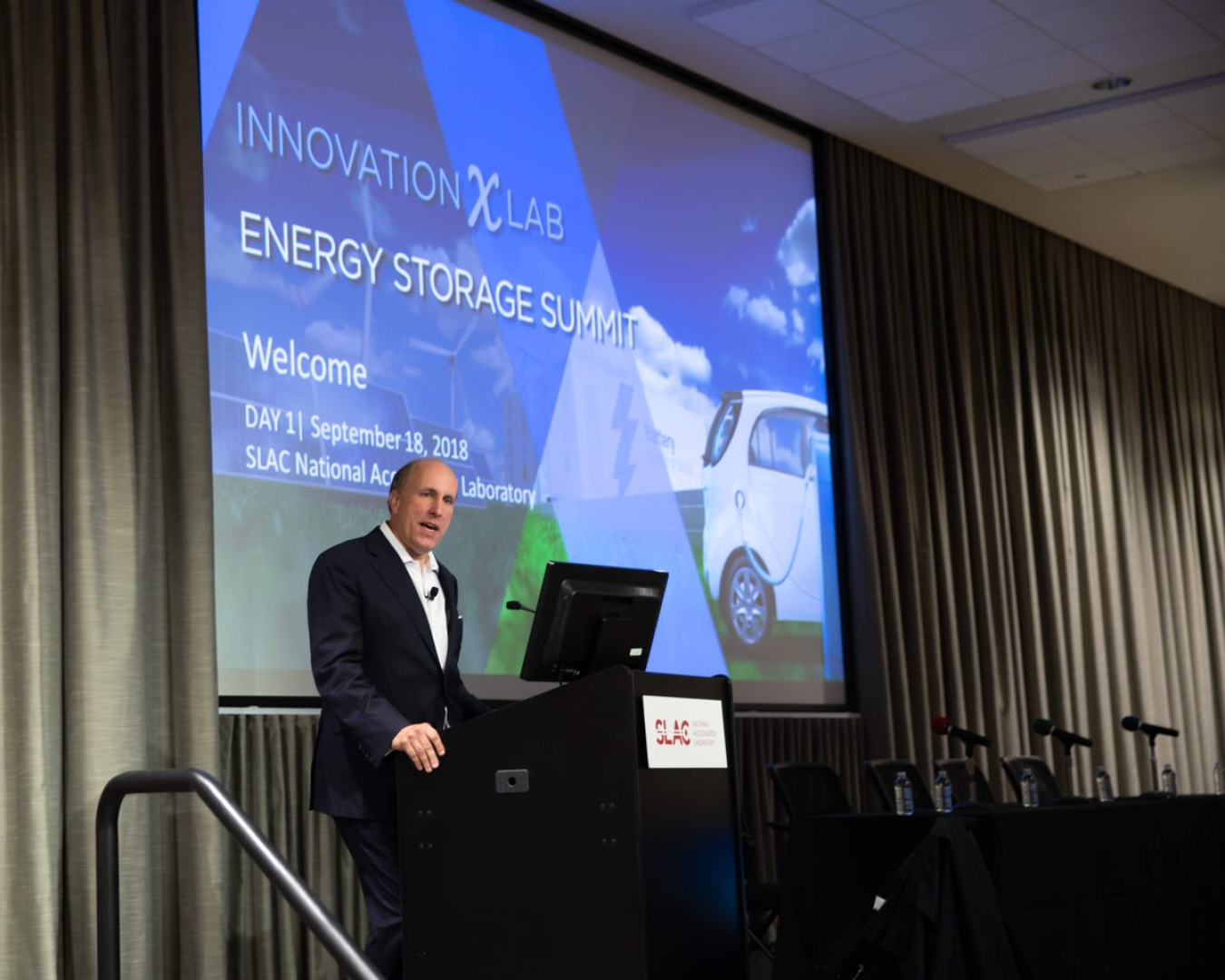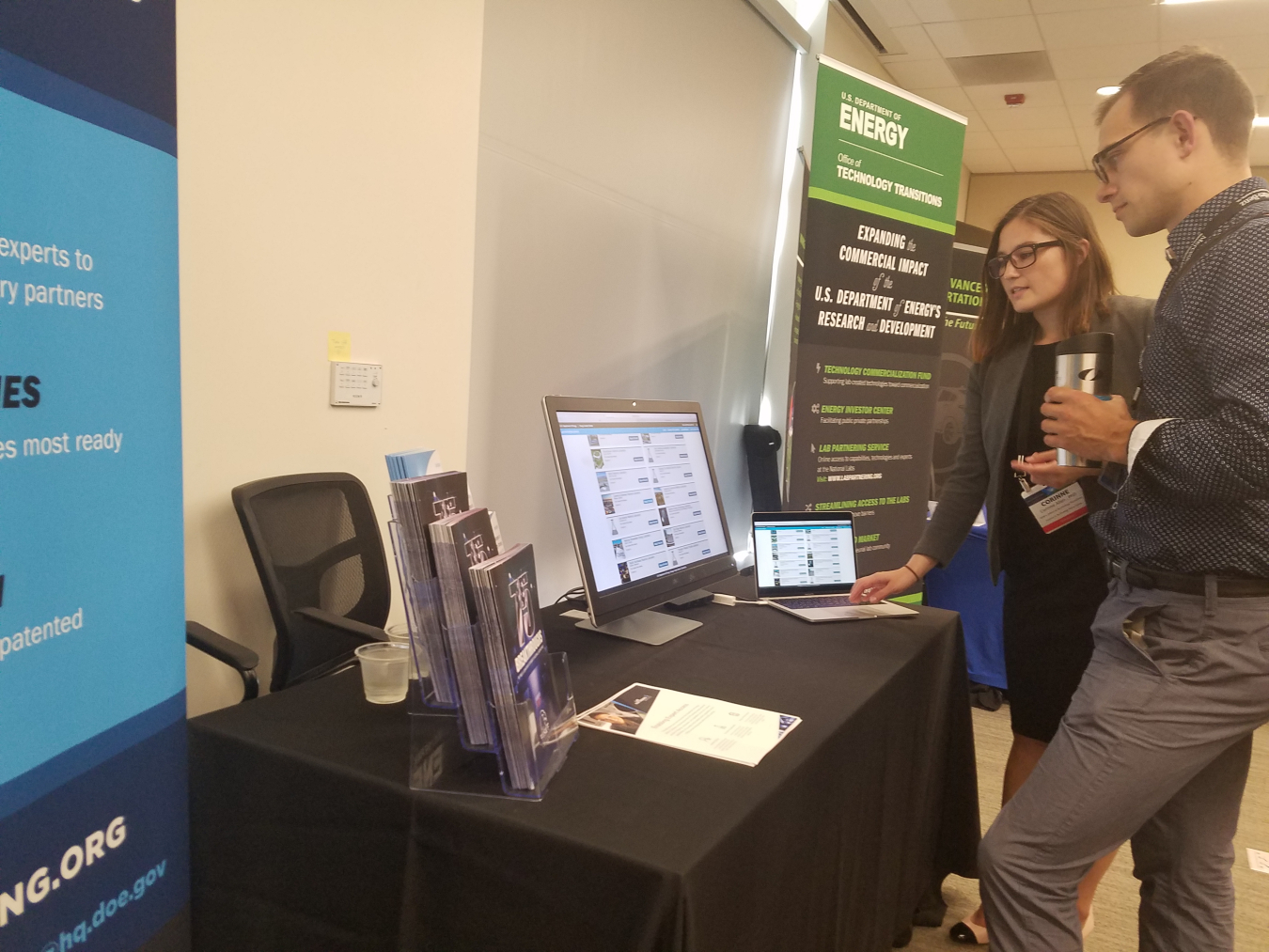First InnovationXLab Summit Brings Tech Experts Together
Office of Technology Commercialization
October 11, 2018
Paul Dabbar, Undersecretary for Science at the U.S. Department of Energy, addresses the first InnovationXLab Initiative summit held at SLAC National Accelerator Laboratory in Menlo Park, California.
Albert Einstein once said that, “Knowledge is limited. Imagination encircles the world.”
300 attendees from private companies, universities and the 17 Department of Energy (DOE) National Laboratories recently put Einstein’s words to the test at the first InnovationXLab Initiative summit held at SLAC National Accelerator Laboratory in Menlo Park, California.
The two-day summit, which was organized by Energy Investor Center Director Sanjiv Malhotra and his team, saw expert panels discuss how energy storage is one of the biggest challenges to unlocking the potential from the next generation of transportation and electricity grid technologies. The summit showcased the broad array of technical resources available from across DOE’s National Lab complex that can be leveraged by industry to address these challenges.
"The InnovationXLab Series is bridging gaps between science, applied technology and prototyping,” Malhotra said. “Ultimately, this series is reinforcing commercialization efforts by mitigating risks for investors and the private sector while expediting the scale up of DOE lab developed technologies."
Paul Dabbar, Undersecretary for Science at the U.S. Department of Energy, urged attendees to embrace the spirit of the historic scientific firsts achieved at SLAC, from confirming the existence of quarks to the discovery of dark matter, and help move energy storage innovations forward.
“Many of these innovations are ready for private sector development to become consumer products,’ Dabbar said. “And through this showcase, we are hoping to foster investments and public-private collaborations that will carry our Labs’ breakthroughs into the market, sooner rather than later.”
A video of Undersecretary Dabbar’s complete remarks can be viewed by following this link and a fireside chat he conducted at the summit can be viewed at this link.
Dabbar’s enthusiastic support for the DOE Laboratory network was further shared with the investor community thru an op-ed published in Investor’s Business Daily on Sept. 27th.
XLab also was an opportunity to see live demonstrations of the new Lab Partnering Service which provides energy investors direct, no-cost access to lab energy experts, project marketing summaries and the ability to use varied search techniques to identify energy patents addressing their specific needs.

All the XLab summit participants also received copies of The Spotlight: Solving Challenges in Energy Storage from the U.S. Department of Energy’s (DOE) Office of Technology Transitions (OTT) showcasing the latest on energy storage and related activities at DOE and its National Laboratories.
Over $1.6 billion in DOE investments in early-stage research starting as far back as 1992 have led to impressive advances in energy storage technology.
The results are striking so far:
- From 2010 to 2016, utility-scale battery installations jumped from less than five MWs to over 190 MWs. That’s enough stored energy to power 190,000 homes.
- U.S. EV sales have jumped from 17,400 in 2011 to over 200,000 in 2017.
- Lithium-ion batteries, which now dominate the EV and consumer electronics industries, have seen an 80 percent cost reduction since 2008 due to technological advances.
Malhotra expressed his sincere thanks to SLAC for hosting this first XLab event, which also allowed attendees to tour the lab facilities of SLAC and nearby Lawrence Berkley National Laboratory.
The Office of Technology Transitions develops DOE’s policy and vision for expanding the commercial impacts of its research investments and streamlines information and access to DOE’s National Labs, sites, and facilities to foster partnerships that will move innovations from the labs into the marketplace. For additional information, visit energy.gov/technologytransitions

